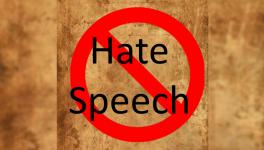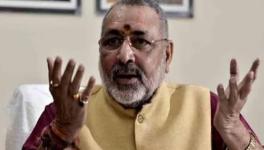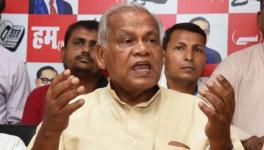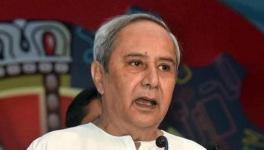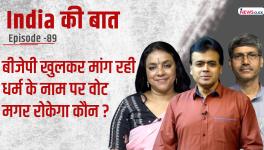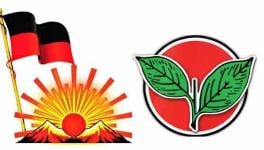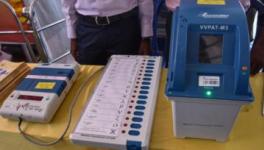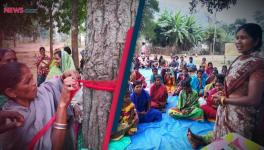Out of the Curriculum- Ambedkar and Periyar
The recent De-recognition of the students group, Ambedkar Periyar Study Circle, in IIT Madras came as a shock to democratic minded citizens across India. Several questions come to one's mind. While there were several students organisations in campus, why was only a Dalit organisation targeted? Why should the HRD ministry be reacting to an anonymous letter? How does this affect the autonomy of higher education institutions? And finally, why should an organisation that upholds Ambedkar's ideals be considered a threat to the Indian state? Newsclick discusses these issues with renowned writer and activist, Subhash Gatade.
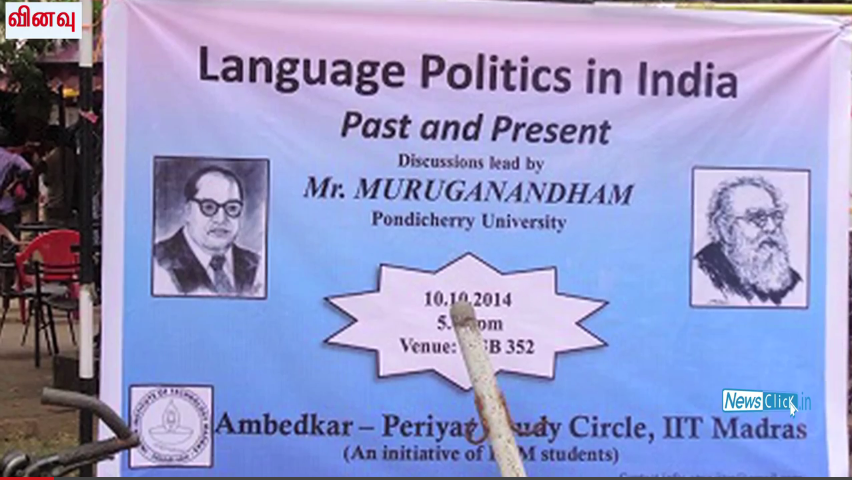
Nakul Singh Sawhney (NSS): Hello and welcome to Newsclick. Today we have with us Mr. Subhash Gatade an eminent activist and writer who has been working and writing exclusively on the caste discrimination, communalism, social justice. Subhashji, welcome to Newsclick. Subhashji what we have seen recently in IIT Madras, what should one say I mean it comes as a huge shock really at one level that a small student organisation that is essentially conducting seminars and holding talks and writing pamphlets, if you look at their work closely, then nothing they have done is actually unconstitutional in that sense. That the HRD Ministry should step in, sends the letter to IIT Madras. IIT Madras decides to act on that and actually derecognises that group. This is actually very absurd at one level. This entire sequence of events.
Subhash Gatade (SG): I see it as a desperation on act of this government. Banning or de-recognising a small group in a small institute which basically works on the ideas of Ambedkar-Periyar. It shows the desperation they are facing after one year in power. All their talk of Achhe Din are going haywire. So they are trying to climb down on every such idea which has a potential of challenging their Hindutva discourse and Ambedkar – Periyar study circle has been raising interesting issues. They think debates among the students about Agrarian crisis, about Bhagat Singh another related issues of contemporary concern. If the government is so desperate about such a group, I think we need to think about it. Another point is that in de-recognising the small group they have violated all the recommendations of the CVC, Central Vigilance Commissioner. CVC has recommended that you are not supposed to act on any anonymous complaint. The HRD Ministry got anonymous complaint about this group and then HRD Ministry found it necessary that it sends the letter to the IIT Madras management and it acted upon it. So the procedure they adopted is unconstitutional. They violated the rules and I think that who has done it, there should be some action on it.
NSS: One of the interesting quotes in the letter send to the HRD Ministry on the basis of which they sent a letter to IIT Madras was that this group Ambedkar Periyar organisation is trying to polarise the students. It is interesting because I think this sort of fits into the larger Hindutva narrative. Somewhere on the one hand there is desperate attempt at appropriating Ambedkar. There is a desperate attempt by Hindutva to appropriate Ambedkar to also include Dalits in the larger Hindutva fold. Nonetheless will continue to be Dalits even the Hindu Rashtra. They are very clear about that. At the same time, Dalits needs to rally behind the larger Hindutva ideology is what they want. The moment you talk about the Dalits rights separately, it is then suddenly talked about polarising Dalit students, issues that are concerning Dalit students. So in this context also do you see that clearly in that letter which says that they are trying to polarize the Dalit students. That's why Ambedkar-Periyar study circle is actually being targeted for that reason as well.
SG: Ambedkar was the Chairman of the constitution committee. How can Ambedkar's ideas creates disharmony in society. Basically, the problem which these people are facing is that you rightly said the Hindutva forces are trying to appropriate Ambedkar in a big way and it is very tragic and disturbing that they are winning also. A section of Dalits have gone over to the Hindutva camp also. The recent 2014 election demonstrated that. So the narrative they are trying to build up the Hindutva forces that Ambedkar was also a Hindu social reformer and whenever there is some challenge to it, Ambedkar Periyar study circle tried to challenge that narrative, trying to challenging this corporate model of governance which this government is adopting, the casteism in this government. So when the alternative narrative is there of Ambedkar, so they have tried to clamp down it and one can see similar situation of Kabir Kala Manch also. They talk about Ambedkar. But this government is very furious about that so that n number of ways, Kabir Kala Manch activists are still not got bail. Their senior leaders are still in jail despite the fact that they are just cultural activists. So an alternate narrative around Ambedkar, so they are not able to digest. So this is why their over reaction on part of this BJP government.
NSS: What we are also seeing that it has not gone off very quiet. I mean there are protests on this clampdown on Ambedkar Periyar Study circle. In fact, lot of IITs across the country, students in IIT Bombay has started Ambedkar Periyar Phule circle. Delhi has also started Ambedkar Periyar study circle. So there has been a very positive reaction to the government's clamping down from civil society at least. But if one has to look at this circle in a slightly larger context, in the context of higher education and it's autonomy, then isn't it a slightly scary trend why should the HRD ministry be sending a letter in response to an anonymous letter about a small student organisation and even when the letter comes in you know it seems that the administration, the Dean of IIT Madras they were very happy giving up their autonomy. You just simply bend backwards and said yeah fine we derecognise. Do you think the autonomy of the higher education is also stake at here?
SG: The way in which the MHRD has intervened in this whole issue violating directions by the CVC is clearly shows that they don't want any autonomy. They want to infringe on the autonomy and it was seen in the Delhi University case also the manner in which the government Smriti Irani intervened in Delhi University case. So secondly, I think it is the general trend of this government. It is least bothered about the processes, procedures, institutions so it just wants to old diktat to rule. They have gone violating these rules. Yesterday only there was a news in Newspapers that the DD has a new Director and Prasar Bharati is supposed to be an autonomous institutions and Prasar Bharati was not even asked. This DD Director is asked to report directly to IB Ministry. So this government is least bothered about the institutions. This general trend is not because we can not blame certain individuals. It is part of their psyche because they know that if procedures are followed, if the institutions are to be abided by, then their whole agenda of Hindutva will get challenged at various levels. So they only wanted their hand picked people at various levels. Yes men, yes women at different levels.
NSS: Again if you look at this trend in certain elite higher education institutions be it IITs, IIMs let's also look back, I mean I don't need to generalize here but I think in some of the strongest protests against reservation, Youth for Equality started happened at the IITs. There have been reports about how Dalit students have felt very marginalized in IIT and this has been attitude towards Dalit teachers as well. Do you see this as a trend?
SG: The issue of caste in higher education we tend to ignore it, we tend to close our eyes and we say that the issue has disappeared. This issue is very much in existence. A few years back Tehelka had done a story focusing on IIT Madras only and it had called IIT Madras Agraharam a board of upper caste Brahmins. It had given a story about how Dalits are denied admission despite the fact that they have got reservation. They are denied admission and at a faculty level also the constitution provision that 12 percent, 13 percent reservation is given, they are not given reservation. So I think the caste mindset rather rules in all these higher education institutions and the much talked about caste certificates abused, denying admission to them. So I think it is a very live issue. I would rather link the banning of APSC with this issue of caste also. You can not just link it with Hindutva. The Brahminical, the Varna mindset is very much visible here and it is a very serious matter that after 60 years of independence this caste is there.
NSS: The resistance against violations of various kinds are also growing and this simultaneous resistance is what I think completely throwing the government off guard like you said there is a desperation that you have to clamp down on small organisations even like an Ambedkar Periyar study circle. So, I think on that positive note that there is a growing resistance we will end today's conversation. Thank you so much for being in Newsclick again Subhashji.
Get the latest reports & analysis with people's perspective on Protests, movements & deep analytical videos, discussions of the current affairs in your Telegram app. Subscribe to NewsClick's Telegram channel & get Real-Time updates on stories, as they get published on our website.









